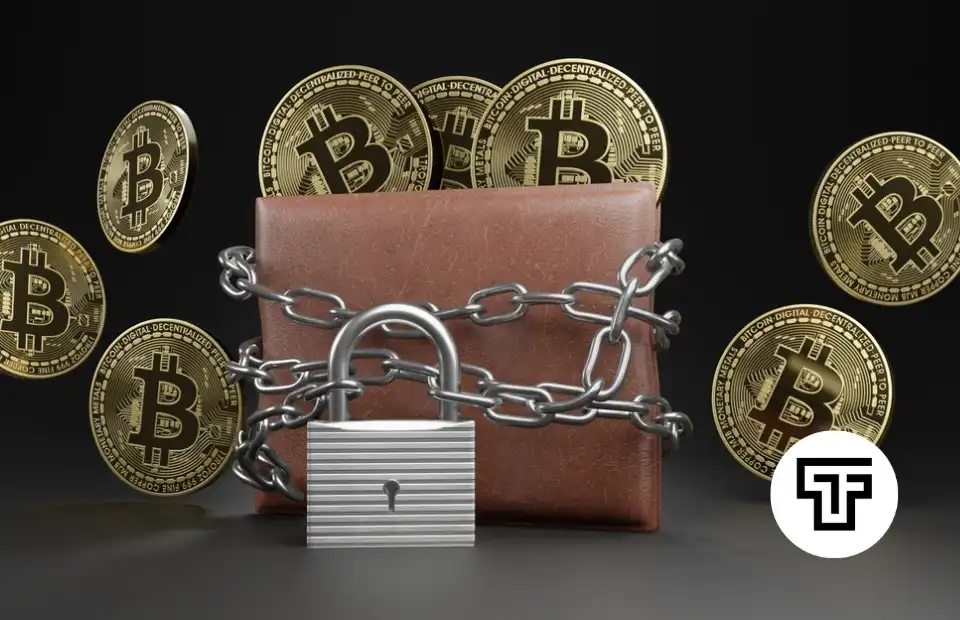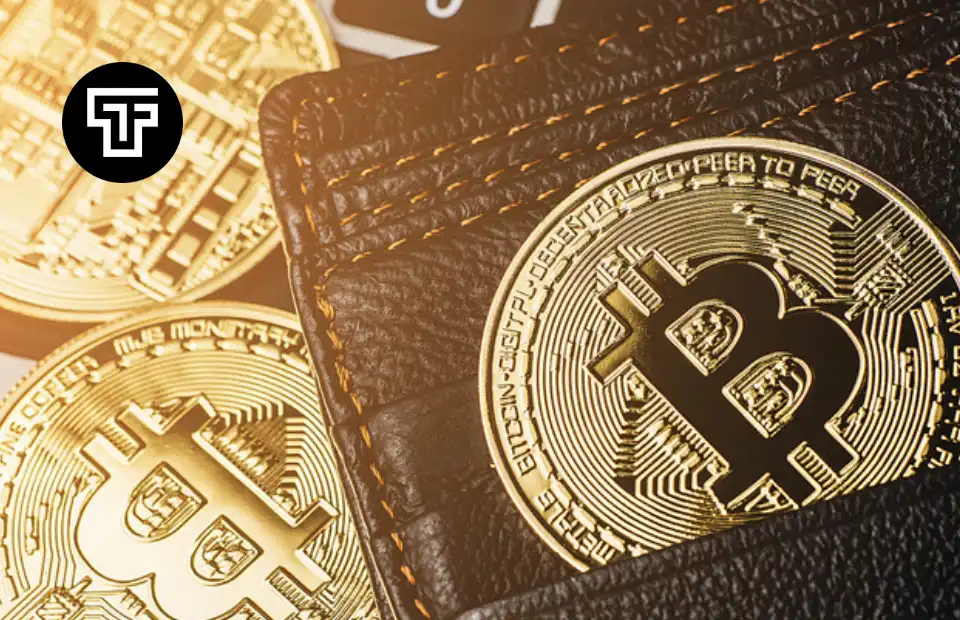Securing your cryptocurrency assets is paramount in an era defined by the digital frontier. This guide, “Fortifying Your Assets: A Guide to Secure Crypto Wallets,” delves into the crucial realm of cryptocurrency wallet security. Explore the strategies and practices that will empower you to safeguard your digital wealth confidently.
Crypto Wallet
A crypto wallet is like a special place to keep your digital money safe. It’s not a real wallet you can touch but a digital one for your cryptocurrency. Just like you have a secret pocket in your pants for your coins, a crypto wallet has a secret code called a private key to make sure your digital money stays secure. You can use it to send, receive, and keep track of your digital coins. So, think of it as your digital piggy bank!
Types of Crypto Wallets
When it comes to ensuring the security of your digital assets, selecting secure crypto wallets is essential. Various wallet types exist, each with its own advantages and limitations. Familiarizing yourself with these diverse options empowers you to make an informed and intelligent choice in safeguarding your cryptocurrency holdings while keeping your digital money safe.
- Hardware Wallets: Imagine these unique gadgets that look like tiny computers. They’re super good at keeping your digital money safe because they don’t connect to the internet. But they can be tricky to use and might cost you some money.
- Software Wallets: These are applications or programs installed on your computer or smartphone. While convenient and user-friendly, they are more susceptible to malware and hacking attempts. Properly securing your device is crucial when using software wallets.
- Paper Wallets: A paper wallet is a physical document containing your cryptocurrency keys, typically in QR codes or alphanumeric strings. It’s entirely offline, making it immune to online threats. However, physical damage or loss can result in permanently losing your funds.
- Mobile Wallets: Apps designed for smartphones are mobile wallets. They offer convenience for everyday transactions but should be used cautiously. Ensure your device is secured with strong passwords and encryption to minimize risks.
Essential Security Measures

Regardless of the type of secure crypto wallet you choose, implementing essential security measures is vital for protecting your digital assets. These measures act as a fortress guarding your cryptocurrency holdings from potential threats:
Passwords and Passphrases
Begin with solid and unique passwords for accessing your wallet. Passphrases, longer and more complex than passwords, add an extra layer of security. Avoid using easily guessable information like birthdays or everyday phrases.
Two-factor authentication (2FA)
Enable 2FA whenever possible. This requires users to provide a second authentication factor (like a one-time code sent to their mobile device) and their password, significantly enhancing security.
Biometrics
Some wallets and devices support biometric authentication methods like fingerprint or facial recognition. Utilizing these features adds an extra level of convenience and security.
Wallet Backup and Recovery
Always back up your wallet’s private keys or seed phrase. This backup ensures that you can recover your funds if you lose access to your purse due to theft, loss, or damage.
Regular Software Updates
Keep your wallet software up to date to patch known vulnerabilities. Developers often release updates to address security issues, and staying current is crucial to maintaining a secure wallet.
By implementing these fundamental security measures, you create a robust shield around your crypto assets, reducing the risk of unauthorized access and potential losses. Remember that crypto security is an ongoing process, and regularly reviewing and enhancing your security practices is essential in the dynamic world of cryptocurrency.
Cold vs. Hot Wallets
In cryptocurrency security, the terms “cold” and “hot” wallets refer to the accessibility of your assets. Understanding these two types’ distinctions is pivotal in fortifying your crypto holdings.
Cold Wallets
Some wallets don’t even touch the internet! These are like super-secret lockboxes for your digital money. They’re very safe from computer bad guys, but they’re not so great if you want to use your money a lot because they don’t talk to the internet.
Hot Wallets
Other wallets like to chat with the internet all the time! These are good for using your money every day. They can be on your computer or your phone. But you have to be careful because the internet can have some tricky stuff, so it’s best for smaller amounts.
Balancing accessibility with security is the key to effectively managing your cryptocurrency holdings. Depending on your needs, you may use cold and hot wallets, ensuring a secure and practical approach to crypto asset management.
Protecting Your Private Keys
Your private keys are the keys to your cryptocurrency kingdom. They grant access to your funds and must be safeguarded at all costs. Here are essential practices to protect your private keys:
The Role of Private Keys in Wallet Security
Imagine you have a secret key to your money. This key shows that the money is yours. If someone else gets this key, they can take your money! So, keeping this key super safe is important.
Offline Storage Options
It’s like having a secret key to your money. To keep it safe, it’s best to keep it away from the computer and the internet. Special gadgets and papers are great for this. They make sure the bad computer things can’t get to your key.
Key Management Best Practices
- Don’t Tell Anyone: Keep your secret key to yourself. Real wallet people won’t ask for it.
- Strong Passwords: If you use a password, make it really strong and different from others.
- Lock Up Digital Copies: If you have secret key copies on your computer, lock them with a super-strong lock.
- Keep Safe: If you use paper or gadget keys, put them in a super safe place, like a big, strong box at the bank.
- Watch Out: Be careful of tricky people who try to fool you into giving away your secret key.
Secure Transactions
When conducting cryptocurrency transactions, ensuring their security is paramount. Here are essential practices to follow to protect your assets during transactions:
Verifying Recipient Addresses
Before you send your digital money to someone, make sure you write their special address very carefully. If you make a little mistake, your money could disappear forever, and we don’t want that to happen!
Avoiding Phishing Scams
Be super careful with emails and websites. Some people try to trick you by pretending to be real. They want to take your secret key or your money. We need to be smart and not fall for their tricks!
Confirming Transaction Details
Before you send your digital money, make sure to look at everything one more time. Check how much you’re sending and who’s getting it. Some wallets let you see it all first before you say ‘okay,’ and that’s really helpful.
Cryptocurrency-Specific Security Tips
Different cryptocurrencies may have unique security features. Familiarize yourself with the specifics of the cryptocurrency you’re using to ensure secure transactions.
Multi-Signature Wallets
You can make your digital money even safer by using something called ‘multi-signature wallets.’ This means it needs more than one secret key to send money. It’s like having extra locks on your treasure chest to keep it super safe.
Backup and Recovery Strategies

Securing your digital assets with secure crypto wallets involves a critical step: backing up your wallet data and comprehending recovery procedures. These measures are essential to guarantee that you can regain access to your cryptocurrency, even in unfortunate situations like theft, loss, or damage. Here’s what you need to know:
Importance of Backing Up Wallet Data
Your secret key is like a magic key to your digital money. If you lose it, you might lose your money forever. So, remember to make extra copies of your key to keep it safe and never disappear.
Recovery Seed Phrases
When you make your wallet, they give you a special list of words. It’s like a secret code to bring your wallet back if something goes wrong. Keep these words very safe, and they can rescue your money if your computer breaks!
Storing Backups Securely
Think about where you keep your secret code words and backups. If it’s on paper or a special gadget, keep it safe from fires and bad things. If it’s on the computer, lock it with a strong lock or keep it safe in the cloud with a special key.
Regularly Update Backups
When you change things in your wallet, like adding new stuff or moving your money, don’t forget to make a new copy of your secret words. The old one might not have all the right information if you need to get your money back.
Physical Security Considerations
In addition to safeguarding your digital assets in the virtual realm, it’s equally crucial to protect them in the physical world. Here are some valuable strategies to achieve just that with secure crypto wallets:
Securing Hardware Wallets
If you have a special gadget wallet, keep it safe like treasure. Put it in a locked drawer or a strong box. When you take it with you, be very careful, and don’t leave it alone in places with lots of people.
Protecting Paper Wallets
Paper wallets are offline, secure, and susceptible to physical damage or loss. Store them in a waterproof and fireproof container, such as a sealed plastic bag within a fireproof safe.
Mobile Wallet Security Measures
If you have a wallet on your phone, make sure your phone is super safe. Use a strong password, like a secret code or your fingerprint, to unlock it. Also, make your phone hide its secrets with a special lock. And if your phone ever disappears, you can make it findable or erase everything from far away.
Remember, even though your digital money isn’t something you can touch, the things you use to get to it are real and important. So, take good care of them, like you would with your toys or favorite things, to ensure your money stays safe.
Keeping Informed about Security Threats
Staying safe with your digital money is super important. Here’s how to do it:
Read About It
Keep reading the news about digital money from trustworthy places. They tell you about things that can be tricky or bad.
Know the Tricky Stuff
Learn about things that can be not so nice, like tricky messages or computer problems. Knowing them helps you avoid them.
Be Careful
If someone you don’t know asks for your secrets or important things, don’t give them. Sometimes, people want to trick you into giving away your digital money. So, be super careful!
Additional Security Measures
Knowledge is your most potent weapon for ensuring the security of your cryptocurrency assets. Here are some valuable resources and practices to further enhance your crypto security:
Trusted Sources for Security Information
Rely on well-established sources and communities within the cryptocurrency space for security information. Forums, blogs, and official social media accounts of cryptocurrency projects can provide valuable insights.
Community Forums and Support
Engage with cryptocurrency communities and forums. These platforms often discuss security best practices, share experiences, and provide support. Be cautious about sharing personal or financial information, even on trusted media.
Professional Assistance and Audits
For advanced security needs, consider seeking professional assistance. Security experts and auditors can assess the security of your wallet setup and offer tailored advice. Cryptocurrency projects often undergo security audits, which can be reassuring if you consider investing in them.
Conclusion
Keeping your digital money safe is super important. You can do it by picking the right wallet, keeping your secret key safe, and learning about the tricky stuff. Remember, being careful and doing these things helps keep your digital money safe and sound.

